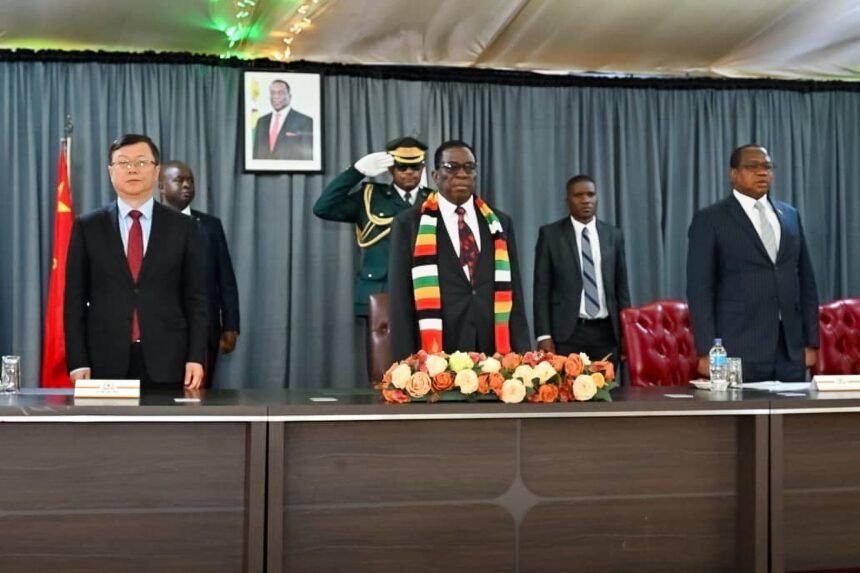Zimbabwe is strengthening its relationship with China through a series of development agreements, trade partnerships, and aid initiatives. In recent months, Chinese officials have worked closely with the Zimbabwean government to expand cooperation in key sectors, including agriculture, infrastructure, and disaster preparedness. At the forefront of these developments is Chinese Ambassador Zhou Ding, whose diplomatic engagements highlight deepening ties between the two nations.
One of the most notable agreements was signed by Ambassador Zhou and Zimbabwe’s Finance Minister, Professor Mthuli Ncube, formalising a new round of economic and technical cooperation. The deal also included the exchange of letters for emergency food assistance, an initiative that was formally acknowledged by President Emmerson Mnangagwa during a public ceremony. Ambassador Zhou described the moment as a direct outcome of President Mnangagwa’s 2024 state visit to Beijing, calling it “another milestone” in what he referred to as a long-standing friendship.
The agreement included the delivery of around 3,000 tonnes of rice and wheat, China’s second batch of emergency food aid since Zimbabwe declared a national disaster last year due to worsening drought and food shortages. The handover, attended by Deputy Minister of Public Service, Labour and Social Welfare, Mercy Dinha, was framed as part of China’s broader commitment to supporting food security across the country.
In addition to direct aid, Chinese officials say they are investing in Zimbabwe’s long-term agricultural capacity. Projects include borehole drilling, improvements to irrigation systems, and the transfer of agricultural technology, all aimed at supporting farmers and reducing reliance on subsistence farming. There is also an emphasis on training and skills development to help shift Zimbabwe’s farming economy towards more commercial, sustainable models.
China’s cooperation with Zimbabwe also extends beyond agriculture. In the same week as the food aid handover, Ambassador Zhou held talks with Minister of Local Government and Public Works, Daniel Garwe, to explore further collaboration in disaster risk management and urban development. China has welcomed Zimbabwe’s application to join the Belt and Road International Cooperation Framework for Disaster Risk Reduction and Emergency Management (BRIDRREM), which aims to promote resilience to natural disasters through shared resources, technical support, and policy coordination.
Despite these developments, Zimbabwe’s growing ties with China have drawn mixed reactions. For many, China’s support offers much-needed relief in times of crisis and a potential pathway to long-term development. For others, it raises questions about overreliance on foreign assistance and the risk of creating new forms of dependency at a time when African countries are being encouraged to become more self-reliant and inward-looking.
Critics argue that while China’s aid addresses immediate needs, Zimbabwe’s government must also prioritise structural reforms, particularly in agriculture. Mechanisation, access to capital, and skills training are all seen as essential if the country is to transition from food insecurity to food sovereignty.
The future of this partnership may well depend on how Zimbabwe manages that balance: using China’s support not simply to survive, but to build. Whether this cooperation leads to genuine transformation or further dependency remains a question many observers are watching closely.










